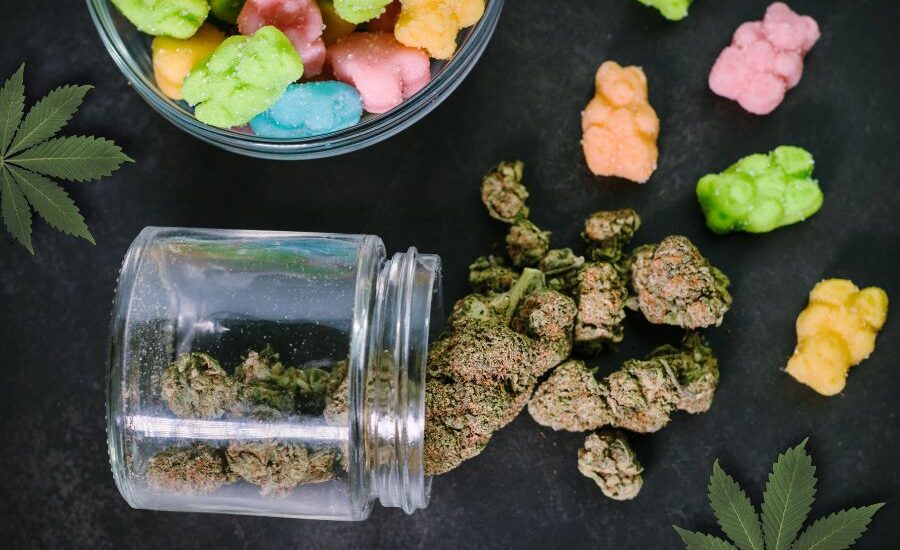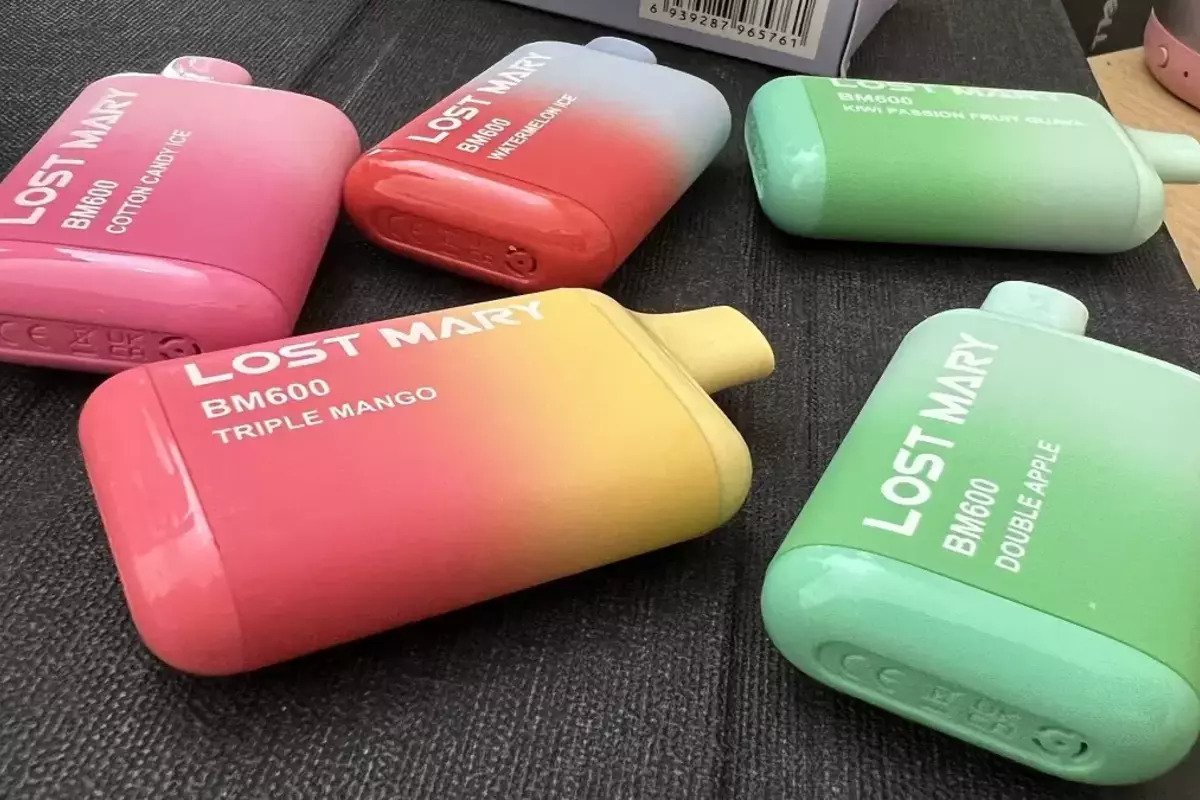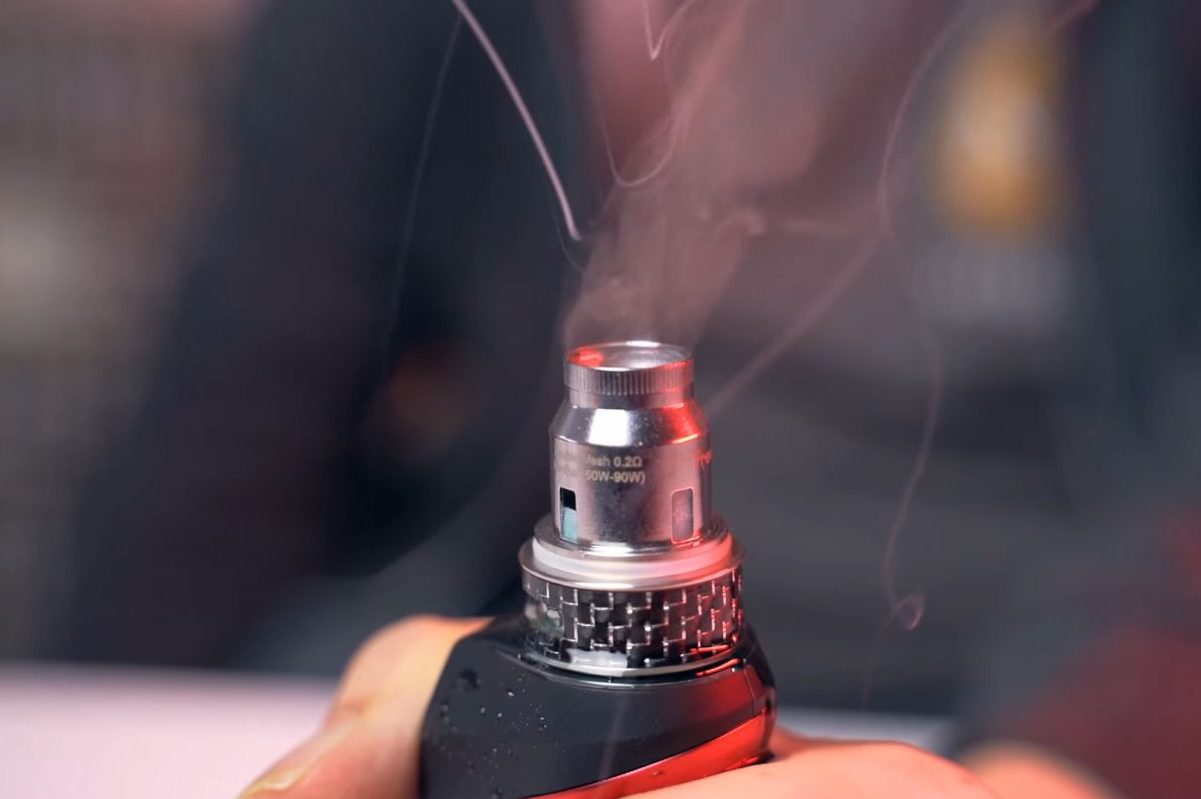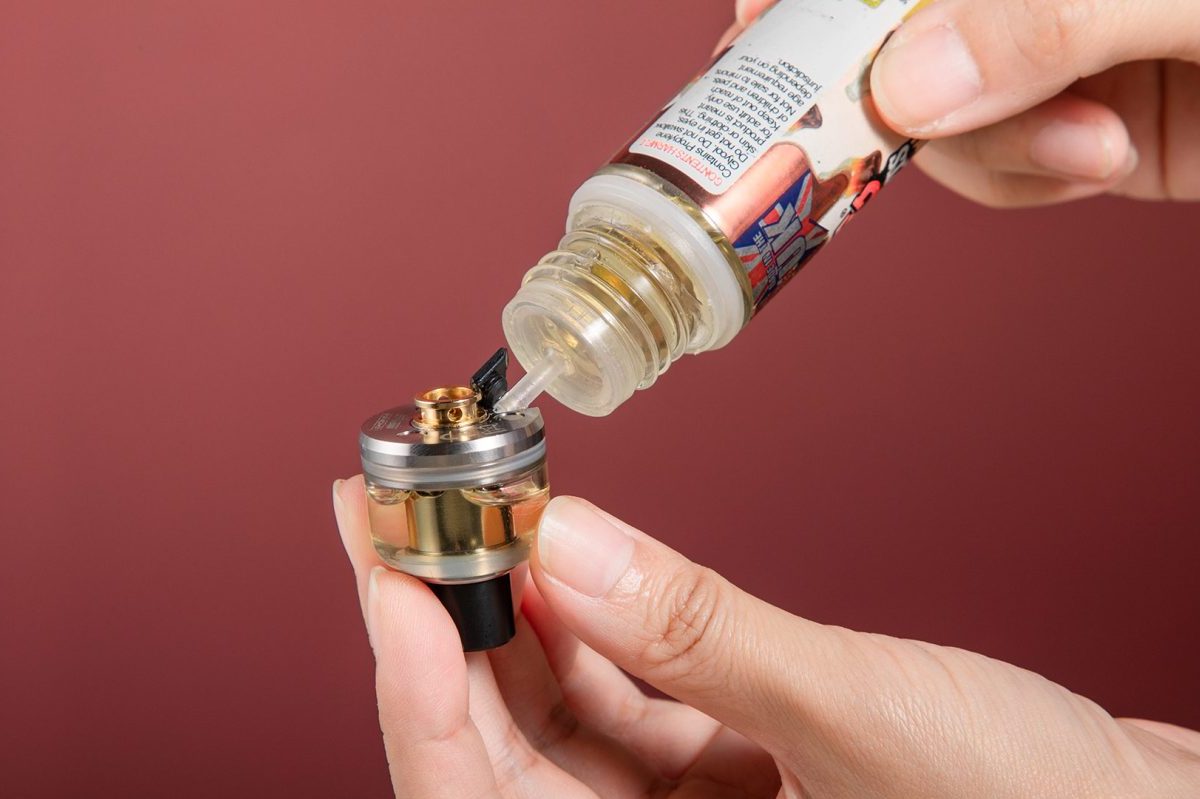Taking edibles comes with some benefits. In states where it’s okay to use marijuana for fun or as medicine, you’ll find cannabis shops that sell various products with delta-9-tetrahydrocannabinol or delta-9 THC. There’s another compound called delta-8-tetrahydrocannabinol, or delta-8 THC. This substance is also legal in some places. It’s a bit weaker than delta-9 THC but can still make you feel kind of high. So, what are Delta 8 vs. Delta 9 effects?
Both delta-8 THC and delta-9 THC come from hemp production, the cannabis plant. This hemp plant has more than 100 active parts known as cannabinoids. However, while cannabis plants research shows there’s quite a bit of delta-9 THC in the plant, there’s not much delta-8 THC.
Keep reading to learn more about delta-8 THC and delta-9 THC. We’ll answer questions like how they are alike and different and what the perks or risks are.
What Is Delta-8 THC?
The cannabis sativa plant contains a small amount of delta-8 THC. People usually make delta-8 THC in concentrated forms from cannabidiol (CBD), which comes from the hemp and marijuana plants. Unlike CBD, delta-8 THC can make you feel high, but it’s generally not as strong as delta-9 THC.
You can find delta-8 THC in various products like gummies, chocolate, cookies, tinctures, vaping cartridges, drinks, and even breakfast cereal.
Some companies claim that delta-8 THC products can treat medical conditions. But the Food and Drug Administration (FDA) hasn’t checked or approved these claims of oral and intravenous administration. In fact, in May 2022, the FDA sent warning letters to five companies selling delta-8 THC products illegally.
What are the Potential Benefits?
If you’ve been wondering about the differences between delta-8 THC and delta-9 THC, we are here to provide you with a clearer picture.
First off, when we talk about these compounds, we need to consider a few things:
- First, think about all the stuff you’re putting in your body.
- Consider how much you’re taking – the dose matters, too.
- Think about how often you’re using it. Daily? Weekly? Rarely?
- Are you smoking it, eating it, or something else? How you take it can change things.
- Quality Control: Pay attention to how it’s made. Is it grown, extracted, and put together with care?
- Lastly, think about yourself. Your age and your health – they’re important too.
Now, let’s talk about some good things that delta-8 THC might bring your way:
- It could help ease your pain.
- You might sleep better.
- If your nerves or immune system are acting up, it could help calm them down.
- If you’ve lost your appetite, it might bring it back.
- If you’re feeling overwhelmed by your senses, delta-8 THC might help.
- It could also reduce inflammation in your body.
So, when it comes to delta-8 THC and its cousin delta-9 THC, remember there’s a lot to think about, and they might bring some good stuff along if you use them right. In fact, studies confirmed this. An experiment had eight pediatric cancer patients as subjects for over two years. The study concluded that the patients did not experience nausea as long as they ingested Delta-8-THC before and after chemotherapy. But always talk to a pro before diving in!
What are the Potential Risks?
When you consume too much delta-8 THC, the adverse effects can get worse as you take more of it. In the short term, if you have too much delta-8 THC, you might experience:
- Feeling very tired
- Getting confused
- Feeling anxious and maybe even panicky
- Having a dry mouth and dry eyes
- Your heart is beating faster than usual
- Finding it hard to coordinate your movements
There are other risks when it comes to delta-8 THC, and they have to do with the companies that make these cannabis products. The FDA, which is in charge of making sure things we consume are safe, says that delta-8 THC products could have potentially harmful chemicals or things that can make you sick. Some of these chemicals are used when making delta-8 THC.
What Is Delta-9 THC?
Delta-9 THC, the main natural mind-altering element found in cannabis, is what gives that classic “high” feeling when someone smokes or consumes it in significant amounts. In places where delta-9 THC is technically legal, you’ll find it in various forms at cannabis stores.
They offer products like gummies, cookies, candies, drinks with THC, tinctures, vape cartridges, creams you can put on your skin, and pre-rolled joints. Some companies claim that their delta-9 THC products help with certain medical conditions and reduce pain or illnesses.
What are the Potential Benefits?
Discover the Potential Perks of Delta-9 THC:
- Delta-9 THC may help you unwind and de-stress, calming you.
- It has the potential to reduce anxiety levels, helping you feel more at ease.
- If you’re struggling with a diminished appetite, delta-9 THC might boost your hunger.
- It could bring about feelings of happiness and excitement, enhancing your mood.
- Some users report a boost in creativity and imagination under its influence.
- Your sensory perception may become more acute while using delta-9 THC.
Research indicates that delta-9 THC may offer therapeutic benefits and medicinal benefits for various conditions, including:
- Nausea and Vomiting
- Seizure Disorders
- Chronic Pain
- Multiple Sclerosis (MS)
- Sleep Disorders
The fact is we can’t say for certain that delta-9 THC and other cannabinoids are solely responsible for these effects. However, individuals in chemical structure medical cannabis programs have consistently reported benefits for the conditions mentioned above.
Moreover, growing evidence suggests potential public health benefits for several conditions. Some of them include depression, anxiety, post-traumatic stress disorder (PTSD), neurodegenerative disorders, seizures, autism, and autoimmune diseases, among others.
It’s important to note that research on the long-term use of delta-9 THC and its impact on sleep is somewhat limited. Some studies suggest it can improve sleep patterns, while others indicate that chronic cannabis use might disrupt sleep and delay the onset of sleep.
What are the Potential Risks?
The effects of using delta-9 THC, found in cannabis, vary depending on a few things, like how much you use and how strong it is. Here are some possible side psychoactive effects:
- Feeling unusually worried or scared.
- Becoming more anxious or nervous than usual.
- Feeling tired and sleepy.
- Being unsure or unclear about things.
- Having a dry, sticky feeling in your mouth.
- Not feeling good, feeling down, or just not satisfied.
- Having lower blood pressure than normal.
So, it’s essential to be aware of these potential adverse effects if you decide to use delta-9 THC. It’s a good idea to talk to a healthcare professional if you have any concerns about its use.
Can Delta-8 Show Up on a Drug Test?
Delta-8 THC is a bit different from delta-9 THC when it comes to drug tests. Usually, if you take delta-8 THC, it won’t make the drug test show a positive result for THC unless that test is specifically looking for delta-8 THC traces. However, there’s a catch.
If the delta-8 THC product you’re using has some delta-9 THC in it, then the drug test might show a positive result for THC.
Now, as delta-8 THC is gaining popularity, some labs are including tests that specifically check for delta-8 THC. So, in simple terms, it’s not 100% certain that delta-8 THC won’t trigger a positive result on a drug test. It depends on what’s in the delta-8 THC product you’re using and the kind of drug test you’re taking.

Delta-8 THC vs. Delta-9 THC: Differences and Similarities
Delta-8 THC and delta-9 THC might sound like they come from the same chemical family, and they do! Imagine them as LEGO sets with the same building blocks: carbon, hydrogen, and oxygen. The fun part is they arrange these blocks a bit differently.
Let’s explore the exciting world of the chemical and molecular structure of delta-8 THC and delta-9 THC to uncover what sets the two cannabinoids apart!
Similarities
Delta-8 THC and delta-9 THC are two compounds that can have different effects on cannabinoid receptors in your body, both good and not-so-good. They work by interacting with CB1 and CB2 receptors in your body, especially in the central nervous system.
When these CB1 receptors are activated, they do some pretty cool things:
- It helps in pain relief, stimulate appetite,
- It makes it easier for you to sleep
- It helps you chill out when your nerves are acting up
- Make you feel hungry (which is nice when you want a good meal). It heals your nerves, increases appetite, stimulates your appetite
- And it stops you from feeling overwhelmed by too much sensory stuff.
Differences
For nearly six decades, scientists have been deeply exploring Delta-9 THC, but there’s been relatively little research on Delta-8 THC. What makes them even more interesting is how they are handled in the cannabis market in terms of rules and regulations.
Delta-9 THC is under strict control in states where it’s federally legal, with clear guidelines on testing, extraction methods, and labeling. However, when it comes to Delta-8 THC products, many manufacturers don’t adhere to such specific rules. This means they might not ensure that their products are free from unwanted substances or that the final product matches what’s stated on the label.
Another notable chemical difference between Delta-8 THC and Delta-9 THC is their potency. It’s reasonable to say cannabis consumers expect that an adequately labeled Delta-8 THC product would be roughly one-quarter to one-third less potent than an equal amount of Delta-9 THC.
When it comes to consumption, you can smoke and vaporize Delta-9 THC in its natural flower (bud) form without needing extensive processing. However, an extraction process is necessary for edibles, topicals, and other medical uses. On the flip side, almost all Delta-8 THC products are created by the same process: synthesizing, extracting, and refining compounds from CBD derived from cannabis or hemp plants.
Summary
In conclusion, both Delta-8 and Delta-9 THC have promising potential medicinal properties for helping with different medical issues. But it’s essential to know they also have specific risks, medical benefits, and things to consider.
To make smart choices about using these synthetic cannabinoids, though, it’s crucial to understand the differences between them. You should understand what the laws say about them, how to use them, and what safety issues to keep in mind.
As our understanding of cannabis and the laws around it keeps changing, it’s essential to stay updated on cannabis research. Being informed about Delta-8 and Delta-9 THC and their impact on our health is significant.










